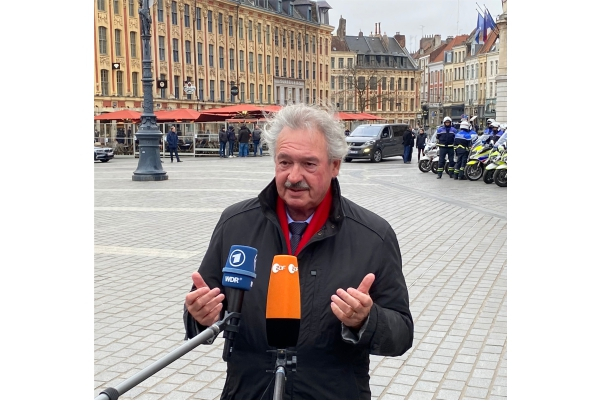 Jean Asselborn, Minister of Foreign and European Affairs;
Credit: MAEE
Jean Asselborn, Minister of Foreign and European Affairs;
Credit: MAEE
On Thursday 3 February 2022, Luxembourg's Minister of Foreign and European Affairs, Minister of Immigration and Asylum, Jean Asselborn, took part in the informal meeting of the "Justice and Home Affairs" Council of the European Union (EU) in Lille, France.
This informal meeting enabled the French Presidency of the Council of the EU, the Member States and the European Commission to identify potential avenues in order to be able to move forward on the pact on asylum and migration. The French presidency proposed a step-by-step approach in order to achieve tangible and balanced progress on the various elements of the pact. As a first step, Franch presidency plans to finalise a compromise that includes an agreement on the overhaul of the Eurodac regulation, the establishment of a filtering mechanism at the external borders and a solidarity mechanism.
During this meeting, Minister Asselborn noted that the discussions were less tense than in the past. For its part, Luxembourg will continue to participate, as in recent years, in a relocation mechanism under two conditions. First, it is necessary to expand the number of solidarity states. "If we manage to establish a 'coalition of willing countries', the participating States must be able to count on support which takes account of the real costs of relocation", said Minister Asselborn.
States that do not participate in the relocation should contribute, in a binding manner, financially to the costs incurred in the host countries.
With regard to filtering, Minister Asselborn stressed that an asylum seeker is not a criminal and that, consequently, one cannot systematically deprive him of his liberty if he requests international protection in a country of the EU. Strict compliance with proportionality in the measures governing the filtering procedure must also be observed, while exemptions for vulnerable persons and families must be guaranteed.
The French presidency has concluded that additional efforts will be necessary to converge positions. Work will continue at the technical level in order to outline the outlines of a first package of compromises. The ministers in charge of migration will come back to this at the “Justice and Home Affairs” Council on 3 March 2022.
During the discussion on the Schengen reform, Luxembourg recalled the value of this area in the eyes of citizens, one of the most precious achievements of our European construction. It is absolutely necessary to preserve it, by making its operation more efficient and also by ensuring that it meets the expectations of citizens. The idea of political governance that also addresses more operational issues will ensure a deeper ministerial commitment to restore and preserve the space of free movement.
Luxembourg proposed to intensify the dialogue between neighboring Member States on possible measures taken at internal borders in order to ensure that any possible derogation is always a solution of last resort. The presidency confirmed its desire to endorse the establishment of a specific Schengen Council from March.








